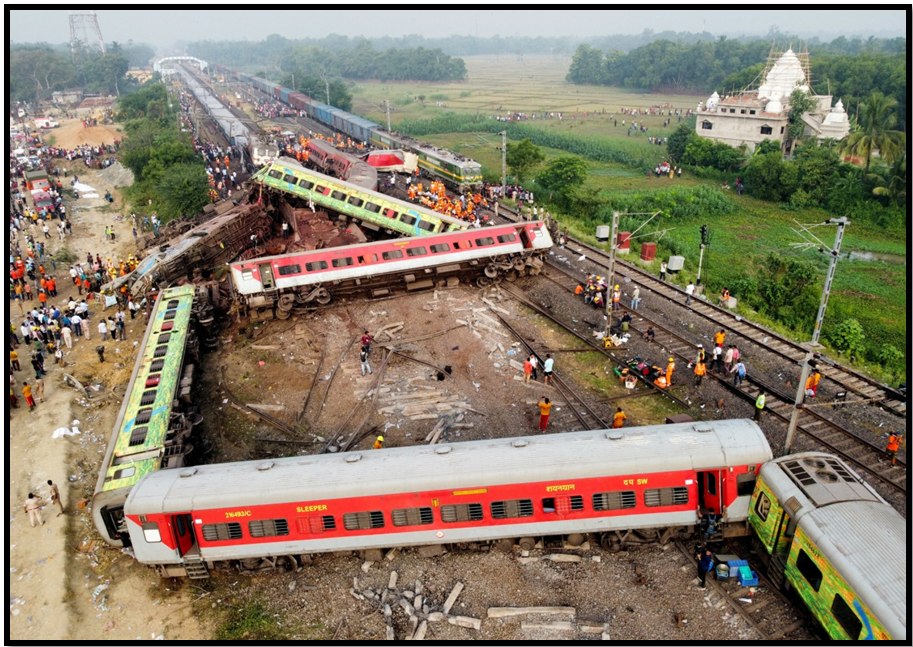RAILWAY SAFETY AND ACCOUNTABILITY IN INDIA
Syllabus:
- GS-3- Railway accidents , infrastructure crisis and solutions for railway safety
Focus :
- The article examines the tragic train accident near New Jalpaiguri, West Bengal, on June 17, 2023, exploring the initial response from the Railway Board, the procedural failures, the role of human error, and the potential impact of advanced safety systems like Kavach. It discusses the broader context of railway safety, human error, and the need for systemic reforms
Source - TH
Overview of the Accident
- Date and Location: June 17, 2023, near New Jalpaiguri, West Bengal.
- Casualties: 10 people killed, over 40 injured.
- Cause: Goods train hit the 13174 Down Agartala Sealdah Kanchanjunga Express due to malfunctioning automatic signaling and manual clearance.
Initial Response of the Railway Board
- Initial Blame: Railway Board initially blamed the goods train loco pilot for disregarding rules.
- Inquiry Ordered: A statutory inquiry was ordered to determine the exact cause and accountability.
Chain of Command and Procedural Failures
- Operational Procedures: Multiple layers of command and procedures should be followed, including station masters, section controllers, signal staff, and gatemen.
- Communication Breakdown: Gateman informed Rangapani station about the goods train on the same track, but it did not prevent the collision.
Signal Failure and its Management
- Routine Event: Signal failures are common but should be managed with caution.
- Procedure: Station master issues a TA-912 notice and a ‘line clear’ ticket to proceed with caution.
- Current Rule: Only one train should be between two block sections at any time.
Role of Advanced Safety Systems (Kavach)
- Preventative Capability: Kavach could have prevented the accident by slowing down the freight train.
- Implementation Challenges: Kavach is operational on only 1,500 km out of the nearly 68,000 km of Indian Railways.
- Accident Statistics: Despite low accident rates, the impact of each accident is significant.
Commission on Railway Safety
|
Human Failure in Railway Accidents
- Common Cause: Human error is a major factor in many railway accidents.
- Rest and Preparedness: The crew of the goods train had adequate rest before the accident, indicating no immediate human error due to fatigue.
- Vacancies: Indian Railways has nearly 18,799 vacancies for loco pilots, which affects operational efficiency.
Recommendations for Improvement
- Committee Recommendations: Various committees have recommended changes to improve safety.
- Kakodkar Committee: Suggested the creation of a statutory Railway Safety Authority to oversee safety regulations.
- Investment in Technology: Need for increased investment in modern technologies and safety systems.
- Political Will: Emphasizes the need for political consensus and prioritization of railway safety and modernization.
Source:The Hindu
Associated Article :
https://universalinstitutions.com/rails-progress-safety-challenges-remain/
Mains Practice Question :
GS-3
“Analyze the systemic and human failures that led to the train accident near New Jalpaiguri in June 2023. Discuss the role of advanced safety systems like Kavach in preventing such accidents and evaluate the recommendations for improving railway safety in India.”250 words)




